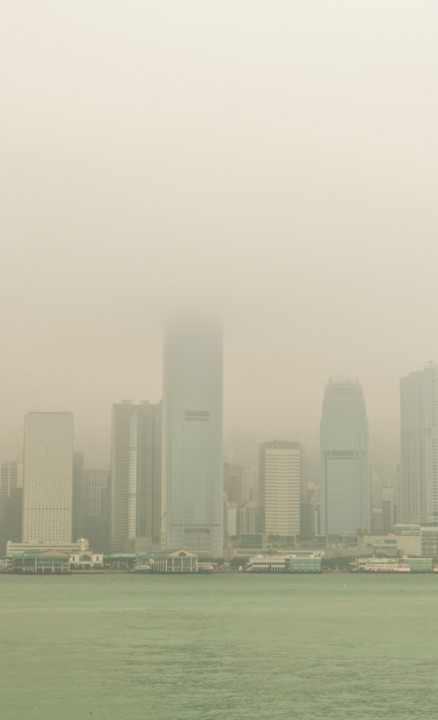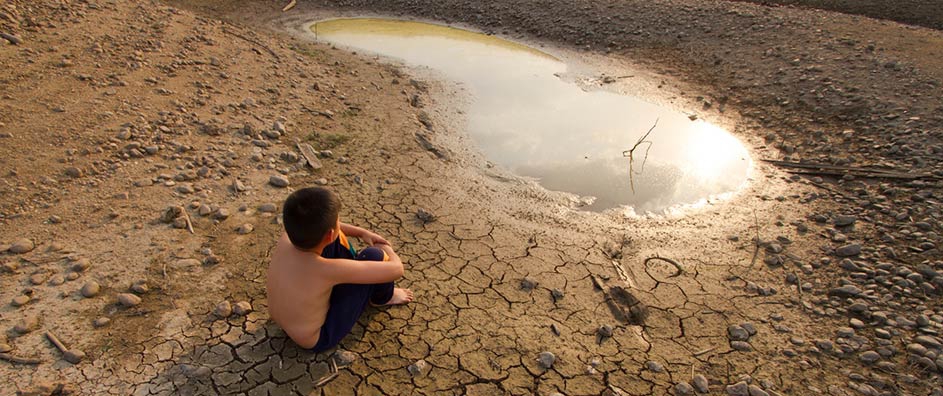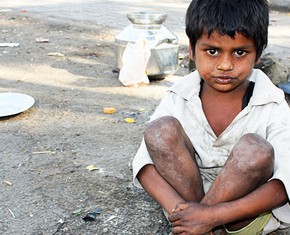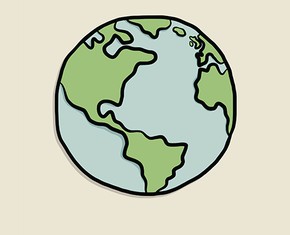The views expressed in our content reflect individual perspectives and do not represent the authoritative views of the Baha'i Faith.
“My mom’s sick,” a friend of mine said when I asked him why he seemed so depressed.
“Oh, no,” I said. “I’m so sorry. I hope she has a good prognosis.”
“Well, actually,” he told me, “the prognosis seems pretty bad.”
“That’s terrible,” I said.
“No, it’s much worse than terrible,” he said. “You see, I’m not talking about my own personal mother. I’m talking about Mother Earth.”
Have you heard the new terms “climate anxiety” or “climate change depression?” That’s what my friend has. He’s an American Indian, and he feels the plight of Mother Earth very deeply—so deeply that he’s become truly grief-stricken about it. Simply put, he’s lost his faith in the future.
Last week, after I talked to him, I saw two documentary films on climate change—neither one of them very uplifting or optimistic—read maybe five or six newspaper articles and scientific journal papers on the subject, and went to two meetings where we talked about ways to deal with our planet’s mounting greenhouse gas problem. I talked to a climate activist who told me she had “burned out” on her environmental work, after becoming convinced that all her efforts weren’t effectively turning the tide of pollution and global warming. I read a few ranting, poorly-informed, climate change denial letters to the editor in my hometown paper. I watched a TV news interview with a respected scientist, who said 2015 was on track to be the hottest year ever recorded on Earth. After this drumbeat of information, I began to realize that I had started to personally feel some of the same sadness for Mother Earth myself.
Do you know what I mean? Lots of people feel this way. Some have even begun to doubt the continuing ability of human beings to survive on our little blue planet. This despair and the feeling of impotence that comes with it produces a deep sadness, a depressive melancholy that some mental health professionals liken to post-traumatic stress disorder or even clinical depression.
This should not surprise us.
In 2014 the American Psychological Association, in a joint report they issued with the National Wildlife Federation, said “Climate change is expected to increase the incidence of mental and social disorders, including depression and anxiety, post-traumatic stress, substance abuse, suicides, and violence.” They added that our “mental health care system is not prepared to handle the projected wide-spread psychological stresses of climate impacts.”
 Three important things have happened to bring this about. First, we now have a truly worldwide environmental crisis—something we’ve never had before. It’s not just desertification in Africa or air pollution in China or toxic waste dumps in the United States that we have to worry about. Instead, the entire planet now faces unprecedented peril. Climate change and its related causes and consequences have produced what the scientists call “the Holocene Mass Extinction Event” or “the Sixth Extinction.” The world now loses up to 140,000 species per year, including plants and animals, mainly due to human activity. We’re on track to wipe out half of the world’s existing species in this century—and, in many places, to raise the atmospheric temperature to unlivable levels during the same time period.
Three important things have happened to bring this about. First, we now have a truly worldwide environmental crisis—something we’ve never had before. It’s not just desertification in Africa or air pollution in China or toxic waste dumps in the United States that we have to worry about. Instead, the entire planet now faces unprecedented peril. Climate change and its related causes and consequences have produced what the scientists call “the Holocene Mass Extinction Event” or “the Sixth Extinction.” The world now loses up to 140,000 species per year, including plants and animals, mainly due to human activity. We’re on track to wipe out half of the world’s existing species in this century—and, in many places, to raise the atmospheric temperature to unlivable levels during the same time period.
Secondly, environmental issues like climate change have outstripped our governance model’s ability to adequately respond to the crisis. With Earth’s two hundred sovereign nations, and no effective, binding form of world government or global regulatory mechanism, we have literally hundreds of different and sometimes contradictory legal frameworks attempting to respond to the crisis. Those frameworks range from serious controls on fossil fuel emissions and pollution to no controls at all. This means no treaty that the world’s nations have ever signed on the issue has any binding authority, leaving the reduction of CO₂ and other greenhouse gases to voluntary measures, which have repeatedly failed.
Thirdly, our economic systems—built on the premise of permanent, continuing, unfettered and limitless growth—have encouraged runaway consumption, materialism and resource use. Those economic systems urge and incentivize us to continue to burn more and more fossil fuels, which produce most of the energy for the engines of our economies, but which will also raise the global temperature to dangerous and unsustainable levels.
These three major factors—a truly global crisis, no adequate response mechanism and growth-dependent economic systems—have led many people to conclude that we don’t have a prayer of saving our planet. When you look at the scientific findings, which paint a very disheartening picture, you may wind up agreeing with that terrifying premise. At this point, lots of folks who consider themselves environmental realists, including my friend mourning his Mother, have generally accepted the fact that subsequent generations—if there are any—will blame this generation for destroying the Earth.
What a bleak prospect. Always, in every human generation until now, people have counted on the existence of a future. We had children and grandchildren with the unquestioned certitude that the future would arrive for them, just as we knew the sun would rise tomorrow morning. Our species counted on its future. But now, we have no such certitude. Our most brilliant and knowledgeable scientific minds tell us that our future is tenuous at best and catastrophic at worst.
Those scientific facts, however, don’t factor in one supremely important variable—human spirituality. The Baha’i teachings offer a positive, alternative vision—not only of a path toward an environmentally sustainable planet, but of a unified future world. In this series of essays, meant to frame and focus on the issues the planet faces when the world’s nations meet at the Conference of Parties 21 climate summit in Paris later this month, we’ll take a comprehensive look at that optimistic Baha’i vision, which challenges humanity to make a fundamental shift in its worldview and its values:
From time immemorial the divine teachings have been successively revealed, and the bounties of the Holy Spirit have ever been emanating. All the teachings are one reality, for reality is single and does not admit multiplicity… But humanity, having forsaken the one essential and fundamental reality which underlies the religion of God, and holding blindly to imitations of ancestral forms and interpretations of belief, is separated and divided in the strife, contention and bigotry of various sects and religious factions. If all should be true to the original reality of the Prophet and His teaching, the peoples and nations of the world would become unified, and these differences which cause separation would be lost sight of. To accomplish this great and needful unity in reality, Baha’u’llah appeared in the Orient and renewed the foundations of the divine teachings. His revelation of the Word embodies completely the teachings of all the Prophets, expressed in principles and precepts applicable to the needs and conditions of the modern world, amplified and adapted to present-day questions and critical human problems. – Abdu’l-Baha, The Promulgation of Universal Peace, p. 313.
















Comments
Sign in or create an account
Continue with Googleor